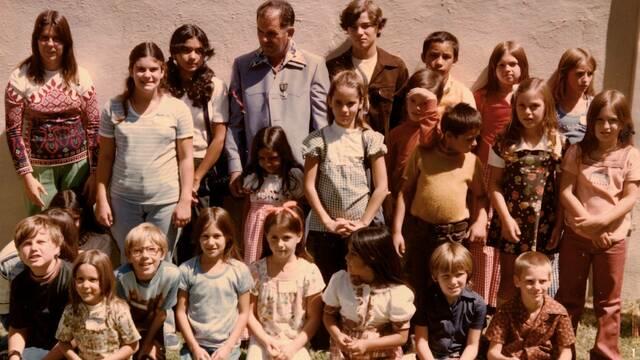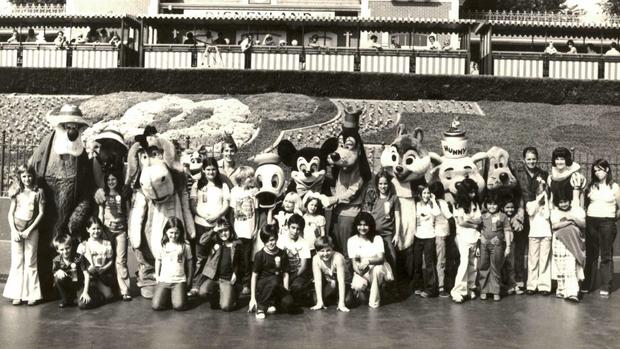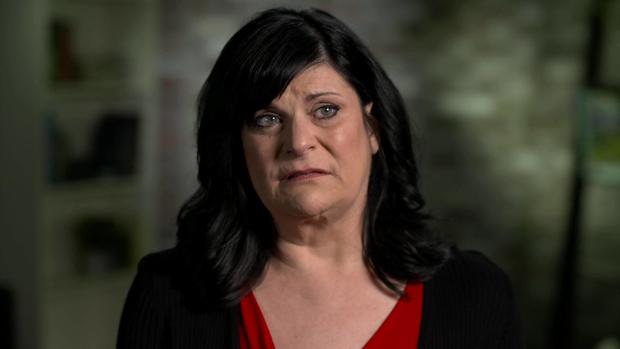▶ Watch Video: Remembering the Chowchilla Kidnapping
In the summer of 1976 three young men from wealthy families kidnapped a school bus full of children in the small town of Chowchilla, California. Twenty-six children ages 5 through 14 and their bus driver were on their way home from summer school when they were taken hostage at gunpoint. It is believed to be the largest kidnapping ever in the United States.
Jodi Heffington was one of the kids on the bus. She was just 10 at the time. In a never-before-seen interview, Heffington spoke in detail about her memories from the horrific experience.
“And this man came up with a stocking over his head with a gun and said ‘open the door’ … I never been around guns. You only see bad guys in the movies with stockings on, so I knew it wasn’t good … He held a shotgun to my stomach … I thought he was going to shoot me,” Heffington told “48 Hours” in this week’s episode, “Remembering the Chowchilla Kidnapping,” airing Saturday, March 18 at 10/9c* on CBS and streaming on Paramount +.
The kidnappers then drove the frightened children and their bus driver Ed Ray in two locked and darkened vans for more than 100 miles before taking them out of the vans one by one.
Heffington recalled the moment. “They’d take the next kid out. And they would close the doors. But when they opened the doors, you don’t see them. I thought they were basically killing us one at a time,” she said.
The kidnappers buried them alive in an underground truck trailer in a rock quarry. Remarkably, after enduring horrific conditions in what felt like an underground prison, the children and their bus driver escaped by digging their way out. They had been underground for nearly 16 hours.
But instead of taking the survivors to a hospital or hotel, police decided to put them all back on a bus and transported them to the closest place that could hold them – the Santa Rita Rehabilitation Center — a local jail. They were questioned for four hours and then finally taken home. Heffington painfully recalled being reunited with her family, “Nothing was ever the same. Nothing was ever the same after that …”
Although most of the children didn’t have any physical injuries from the kidnapping, they all had been through an unimaginable emotional ordeal. At that time, sending them to the “Happiest Place on Earth” – Disneyland — was a way many felt could help the children forget the trauma they endured. Larry Park, who was just 6 years old when he was kidnapped told “48 Hours,” “Everyone thought that was great because the good memories of Disneyland would overshadow the bad memories of the kidnapping.”
But it wasn’t that simple. Many of the children struggled to move forward and suffered from lifelong psychological wounds. Unfortunately, back in 1976, less was known about how to treat childhood trauma. In many cases, parents didn’t know much about or encourage therapy.
Heffington told “48 Hours” that she struggled her entire life to find peace of mind. “How that day affected me has affected me every day in some way or another,” she said. “I think it made me not a good daughter, not a good sister, not a good aunt, and especially not a good mother … I try to be those things. But it seems like, it just took something from me that I can’t ever get back. And I can’t tear down … no matter how hard I try and no matter what I do.”
The kidnappers, Fred Woods and brothers Richard and James Schoenfeld, were eventually sentenced to life with the possibility of parole. That meant, they would get a parole hearing every one or two years. Jill Klinge was an assistant district attorney for Alameda County. She told “48 Hours” the parole hearings were extremely painful for the survivors. She said, “Every time one of the kidnappers came up for parole, it triggered their fears and traumas.”
For all three kidnappers, there have been a total of more than 60 parole hearings to date. Jodi Heffington went to nearly all of them and even testified at some. “It’s excruciating, and the aftermath is never good,” she told “48 Hours.” But she said she went because she wanted to make sure the kidnappers stayed behind bars.
Heffington and the other survivors watched helplessly as Richard Schoenfeld was granted parole in 2012 followed by James Schoenfeld in 2015.
Heffington passed away in January 2021. She was 55 years old. Fourteen months later, the last of the three kidnappers, Fred Woods, went before the parole board for the 18th time. He was granted parole.
Heffington left behind a son, Matthew Medrano, who wants his mother’s voice to be heard. He wrote a letter to “48 Hours, “I ask for all the little girls who’ve been forced into feeling scared, stifled or unrepresented to please let Jodi’s words and her truth to be told.”
PROGRAM NOTE*: Due to the NCAA Men’s Basketball Tournament on CBS, “48 Hours” may be delayed in the east and central time zones.







































